Text
things people do in real world dialogue:
• laugh at their own jokes
• don’t finish/say complete sentences
• interrupt a line of thought with a sudden new one
• say ‘uh’ between words when unsure
• accidentally blend multiple words together, and may start the sentence over again
• repeat filler words such as ‘like’ ‘literally’ ‘really’ ‘anyways’ and ‘i think’
• begin and/or end sentences with phrases such as ‘eh’ and ‘you know’, and may make those phrases into question form to get another’s input
• repeat words/phrases when in an excited state
• words fizzle out upon realizing no one is listening
• repeat themselves when others don’t understand what they’re saying, as well as to get their point across
• reply nonverbally such as hand gestures, facial expressions, random noises, movement, and even silence
189K notes
·
View notes
Text
50 Top Online Learning Sites

Rejoice fellow uni students looking for some studyspo, we urge you to take a few free lessons, as well as academic lessons provided from actual universities on several topics. Have a look at the 50 top learning sites you can find online to help you save some time.
Art and Music
Dave Conservatoire — Dave Conservatoire is an entirely free online music school offering a self-proclaimed “world-class music education for everyone,” and providing video lessons and practice tests.
Drawspace — If you want to learn to draw or improve your technique, Drawspace has free and paid self-study as well as interactive, instructor-led lessons.
Justin Guitar — The Justin Guitar site boasts over 800 free guitar lessons which cover transcribing, scales, arpeggios, ear training, chords, recording tech and guitar gear, and also offers a variety of premium paid mobile apps and content (books/ ebooks, DVDs, downloads).
Math, Data Science and Engineering
Codecademy — Codecademy offers data science and software programming (mostly Web-related) courses for various ages groups, with an in-browser coding console for some offerings.
Stanford Engineering Everywhere — SEE/ Stanford Engineering Everywhere houses engineering (software and otherwise) classes that are free to students and educators, with materials that include course syllabi, lecture videos, homework, exams and more.
Big Data University — Big Data University covers Big Data analysis and data science via free and paid courses developed by teachers and professionals.
Better Explained — BetterExplained offers a big-picture-first approach to learning mathematics — often with visual explanations — whether for high school algebra or college-level calculus, statistics and other related topics.
Design, Web Design/ Development
HOW Design University — How Design University (How U) offers free and paid online lessons on graphic and interactive design, and has opportunities for those who would like to teach.
HTML Dog — HTML Dog is specifically focused on Web development tutorials for HTML, CSS and JavaScript coding skills.
Skillcrush — Skillcrush offers professional web design and development courses aimed at one who is interested in the field, regardless of their background — with short, easy-to-consume modules and a 3-month Career Blueprints to help students focus on their career priorities.
Hack Design — Hack Design, with the help of several dozen designers around the world, has put together a lesson plan of 50 units (each with one or more articles and/or videos) on design for Web, mobile apps and more by curating multiple valuable sources (blogs, books, games, videos, and tutorials) — all free of charge.
General – Children and Adults
Scratch – Imagine, Program, Share — Scratch from MIT is a causal creative learning site for children, which has projects that range from the solar system to paper planes to music synths and more.
Udemy — Udemy hosts mostly paid video tutorials in a wide range of general topics including personal development, design, marketing, lifestyle, photography, software, health, music, language, and more.
E-learning for kids — E-learning for Kids offers elementary school courses for children ages 5-12 that cover curriculum topic including math, science, computer, environment, health, language, life skills and others.
Ed2go — Ed2go aims their “affordable” online learning courses at adults, and partners with over 2,100 colleges and universities to offer this virtual but instructor-led training in multiple categories — with options for instructors who would like to participate.
GCF Learn Free — GCFLearnFree.org is a project of Goodwill Community Foundation and Goodwill Industries, targeting anyone look for modern skills, offering over 1,000 lessons and 125 tutorials available online at anytime, covering technology, computer software, reading, math, work and career and more.
Stack Exchange — StackExchange is one of several dozen Q+A sites covering multiple topics, including Stack Overflow, which is related to computer technology. Ask a targeted question, get answers from professional and enthusiast peers to improve what you already know about a topic.
HippoCampus — HippoCampus combines free video collections on 13 middle school through college subjects from NROC Project, STEMbite, Khan Academy, NM State Learning Games Lab and more, with free accounts for teachers.
Howcast — Howcast hosts casual video tutorials covering general topics on lifestyle, crafts, cooking, entertainment and more.
Memrise — Lessons on the Memrise (sounds like “memorize”) site include languages and other topics, and are presented on the principle that knowledge can be learned with gamification techniques, which reinforce concepts.
SchoolTube — SchoolTube is a video sharing platform for K-12 students and their educators, with registered users representing over 50,000 schools and a site offering of over half a million videos.
Instructables — Instructables is a hybrid learning site, offering free online text and video how-to instructions for mostly physical DIY (do-it-yourself) projects that cover various hands-on crafts, technology, recipes, game play accessories and more. (Costs lie in project materials only.)
creativeLIVE — CreativeLive has an interesting approach to workshops on creative and lifestyle topics (photography, art, music, design, people skills, entreprenurship, etc.), with live access typically offered free and on-demand access requiring purchase.
Do It Yourself — Do It Yourself (DIY) focuses on how-tos primarily for home improvement, with the occasional tips on lifestyle and crafts topics.
Adafruit Learning System — If you’re hooked by the Maker movement and want to learn how to make Arduino-based electronic gadgets, check out the free tutorials at Adafruit Learn site — and buy the necessary electronics kits and supplies from the main site.
Grovo — If you need to learn how to efficiently use a variety of Web applications for work, Grovo has paid (subscription, with free intros) video tutorials on best practices for hundreds of Web sites.
General College and University
edX — The edX site offers free subject matter from top universities, colleges and schools from around the world, including MIT and Harvard, and many courses are “verified,” offering a certificate of completion for a nominal minimum fee.
Cousera — Coursera is a learning site offering courses (free for audit) from over 100 partners — top universities from over 20 countries, as well as non-university partners — with verified certificates as a paid option, plus specializations, which group related courses together in a recommended sequence.
MIT Open Courseware — MIT OpenCourseWare is the project that started the OCW / Open Education Consortium [http://www.oeconsortium.org], launching in 2002 with the full content of 50 real MIT courses available online, and later including most of the MIT course curriculum — all for free — with hundreds of higher ed institutions joining in with their own OCW course materials later.
Open Yale Courses — Open Yale Courses (OYC) are free, open access, non-credit introductory courses recorded in Yale College’s classroom and available online in a number of digital formats.
Open Learning Initiative — Carnegie Mellon University’s (CMU’s) Open Learning Initiative (OLI) is course content (many open and free) intended for both students who want to learn and teachers/ institutions requiring teaching materials.
Khan Academy — Khan Academy is one of the early online learning sites, offering free learning resources for all ages on many subjects, and free tools for teachers and parents to monitor progress and coach students.
MIT Video — MITVideo offers over 12,000 talks/ lecture videos in over 100 channels that include math, architecture and planning, arts, chemistry, biological engineering, robotics, humanities and social sciences, physics and more.
Stanford Online — Stanford Online is a collection of free courses billed as “for anyone, anywhere, anytime” and which includes a wide array of topics that include human rights, language, writing, economics, statistics, physics, engineering, software, chemistry, and more.
Harvard Extension School: Open Learning Initiative — Harvard’s OLI (Open Learning Initiative) offers a selection of free video courses (taken from the edX selection) for the general public that covers a range of typical college topics, includings, Arts, History, Math, Statistics, Computer Science, and more.
Canvas Network — Canvas Network offers mostly free online courses source from numerous colleges and universities, with instructor-led video and text content and certificate options for select programs.
Quantum Physics Made Relatively Simple — Quantum Physics Made Relatively Simple” is, as the name implies, a set of just three lectures (plus intro) very specifically about Quantum Physics, form three presentations given by theoretical physicist Hans Bethe.
Open UW — Open UW is the umbrella initiative of several free online learning projects from the University of Washington, offered by their UW Online division, and including Coursera, edX and other channels.
UC San Diego Podcast Lectures — Podcast USCD, from UC San Diego, is a collection of audio and/or video podcasts of multi-subject university course lectures — some freely available, other only accessible by registered students.
University of the People — University of the People offers tuition-free online courses, with relatively small fees required only for certified degree programs (exam and processing fees).
NovoEd — NovoEd claims a range of mostly free “courses from thought leaders and distinguished professors from top universities,” and makes it possible for today’s participants to be tomorrow’s mentors in future courses.
IT and Software Development
Udacity — Udacity offers courses with paid certification and nanodegrees — with emphasis on skills desired by tech companies in Silicon Valley — mostly based on a monthly subscription, with access to course materials (print, videos) available for free.
Apple Developer Site — Apple Developer Center may be very specific in topics for lessons, but it’s a free source of documentation and tutorials for software developers who want to develop apps for iOS Mobile, Mac OS X desktop, and Safari Web apps.
Google Code — As with Apple Developer Center, Google Code is topic-narrow but a good source of documentation and tutorials for Android app development.
Code.org — Code.org is the home of the “Hour of Code” campaign, which is aimed at teachers and educators as well as students of all ages (4-104) who want to teach or learn, respectively, computer programming and do not know where to start.
Mozilla Developer Network — MDN (Mozilla Developer Network) offers learning resources — including links to offsite guides — and tutorials for Web development in HTML, CSS and JavaScript — whether you’re a beginner or an expert, and even if you’re not using Mozilla’s Firefox Web browser.
Learnable — Learnable by Sitepoint offers paid subscription access to an ebook library of content for computers and tablets, and nearly 5,000 videos lessons (and associated code samples) covering software-related topics – with quizzes and certification available.
Pluralsight — Pluralsight (previously PeepCode) offers paid tech and creative training content (over 3,700 courses and 130K video clips) for individuals, businesses and institutions that covers IT admin, programming, Web development, data visualization — as well as game design, 3D animation, and video editing through a partnership with Digital-Tutors.com, and additional software coding lessons through Codeschool.com.
CodeHS — CodeSchool offers software coding lessons (by subscription) for individuals who want to learn at home, or for students learning in a high school teacher-led class.
Aquent Gymnasium — Gymnasium offers a small but thorough set of free Web-related lesson plans for coding, design and user experience, but filters access by assessing the current knowledge of an enrollee and allows those with scores of at least 70% to continue.
30K notes
·
View notes
Note
(Same old deseace anon) It's okay you can take your time to answer this. Your health is much more important than this, after all! I'm having trouble picking a decease, actually... I've thought about it and I still can't find anything, and I thank you so much for taking your time to help me!! I really appreciate it!!
Hi again, love! I’m very sorry for the wait, but I think I’ve found something that will help you…
Coming Up with Illnesses for Your Characters

WebMD has a feature called the Symptom Checker, which is actually pretty awesome! You start by entering your character’s gender & age range (to increase accuracy) – then it gives you a full body model (I winked out a sensitive area), with body parts to click on and expand. Here’s an example:

Each symptom you click will add to the list in Section 2, which screens the WebMD database for compliant illnesses, diseases, disorders, etc. Some symptoms will prompt questions to get more information:

This gives you more of an idea of how the symptoms affect your character’s daily life. Once you’re finished, Section 3 will give you a list of possible conditions, listed by accuracy of the match. For example: I started the test with bruising and color change (they were at the top of the list) and added headaches, and I wound up with these results:

So. Give this a shot – start with the symptoms you want (I believe you mentioned headaches & general chronic pain?) and maybe add a few more, then see what you come up with. You’re probably going to need to be more specific for the engine – because a lot of diseases cause chronic pain and headaches, which made this question nigh impossible to answer. But hopefully, this is a better answer than I could’ve brainstormed!
Again, sorry for the wait! I wish you great luck with your story, love :)
If you need advice on general writing or fanfiction, you should maybe ask me!
428 notes
·
View notes
Text
Injury angst for writing dummies.
Hospitals and injury are always such a staple of angst fics, but 9 times out of 10 the author has clearly never been in an emergency situation and the scenes always come off as over-dramatized and completely unbelievable. So here’s a crash course on hospital life and emergencies for people who want authenticity. By someone who spends 85% of her time in a hospital.
Emergency Departments/Ambulances.
Lights and sirens are usually reserved for the actively dying. Unless the person is receiving CPR, having a prolonged seizure or has an obstructed airway, the ambulance is not going to have lights and sirens blaring. I have, however, seen an ambulance throw their lights on just so they can get back to the station faster once. Fuckers made me late for work.
Defibrillators don’t do that. You know, that. People don’t go flying off the bed when they get shocked. But we do scream “CLEAR!!” before we shock the patient. Makes it fun.
A broken limb, surprisingly, is not a high priority for emergency personnel. Not unless said break is open and displaced enough that blood isn’t reaching a limb. And usually when it’s that bad, the person will have other injuries to go with it.
Visitors are not generally allowed to visit a patient who is unstable. Not even family. It’s far more likely that the family will be stuck outside settling in for a good long wait until they get the bad news or the marginally better news. Unless it’s a child. But if you’re writing dying children in your fics for the angst factor, I question you sir.
Unstable means ‘not quite actively dying, but getting there’. A broken limb, again, is not unstable. Someone who came off their motorbike at 40mph and threw themselves across the bitumen is.
CPR is rarely successful if someone needs it outside of hospital. And it is hard fucking work. Unless someone nearby is certified in advanced life support, someone who needs CPR is probably halfway down the golden tunnel moving towards the light.
Emergency personnel ask questions. A lot of questions. So many fucking questions. They don’t just take their next victim and rush off behind the big white doors into the unknown with just a vague ‘WHAT HAPPENED? SHE HIT HER HEAD?? DON’T WORRY SIR!!!’ They’re going to get the sir and ask him so many questions about what happened that he’s going to go cross eyed. And then he’s going to have to repeat it to the doctor. And then the ICU consultant. And the police probably.
In a trauma situation (aka multiple injuries (aka car accident, motorbike accident, falling off a cliff, falling off a horse, having a piano land on their head idfk you get the idea)) there are a lot of people involved. A lot. I can’t be fucked to go through them all, but there’s at least four doctors, the paramedics, five or six nurses, radiographers, surgeons, ICU consultants, students, and any other specialities that might be needed (midwives, neonatal transport, critical retrieval teams etc etc etc). There ain’t gonna be room to breathe almost when it comes to keeping someone alive.
Emergency departments are a life of their own so you should probably do a bit of research into what might happen to your character if they present there with some kind of illness or injury before you go ahead and scribble it down.
Wards
Nurses run them. No seriously. The patient will see the doctor for five minutes in their day. The nurse will do the rest. Unless the patient codes.
There is never a defibrillator just sitting nearby if a patient codes.
And we don’t defibrillate every single code.
If the code does need a defibrillator, they need CPR.
And ICU.
They shouldn’t be on a ward.
There are other people who work there too. Physiotherapists will always see patients who need rehab after breaking a limb. Usually legs, because they need to be shown how to use crutches properly.
Wards are separated depending on what the patient’s needs are. Hospitals aren’t separated into ICU, ER and Ward. It’s usually orthopaedic, cardiac, neuro, paediatric, maternity, neonatal ICU, gen surg, short stay surg, geriatric, palliative…figure out where your patient is gonna be. The care they get is different depending on where they are.
ICU.
A patient is only in ICU if they’re at risk of active dying. I swear to god if I see one more broken limb going into ICU in a fic to rank up the angst factor I’m gonna shit. It doesn’t happen. Stop being lazy.
Tubed patients can be awake. True story. They can communicate too. Usually by writing, since having a dirty great tube down the windpipe tends to impede ones ability to talk.
The nursing care is 1:1 on an intubated patient. Awake or not, the nurse is not gonna leave that room. No, not even to give your stricken lover a chance to say goodbye in private. There is no privacy. Honestly, that nurse has probably seen it all before anyway.
ICU isn’t just reserved for intubated patients either. Major surgeries sometimes go here post-op to get intensive care before they’re stepped down. And by major I mean like, grandpa joe is getting his bladder removed because it’s full of cancer.
Palliative patients and patients who are terminal will not go to ICU. Not unless they became terminally ill after hitting ICU. Usually those ones are unexpected deaths. Someone suffering from a long, slow, gradually life draining illness will probably go to a general ward for end of life care. They don’t need the kind of intensive care an ICU provides because…well..they’re not going to get it??
Operations.
No one gets rushed to theatre for a broken limb. Please stop. They can wait for several days before they get surgery on it.
Honestly? No one gets ‘rushed’ to theatre at all. Not unless they are, again, actively dying, and surgery is needed to stop them from actively dying.
Except emergency caesarians. Them babies will always get priority over old mate with the broken hip. A kid stuck in a birth canal and at risk of death by pelvis is a tad more urgent than a gall stone. And the midwives will run. I’ve never seen anyone run as fast as a midwife with a labouring woman on the bed heading to theatres for an emergency caesar.
Surgery doesn’t take as long as you think it does. Repairing a broken limb? Two hours, maybe three tops. Including time spent in recovery. Burst appendix? Half an hour on the table max, maybe an hour in recovery. Caesarian? Forty minutes or so. Major surgeries (organs like kidneys, liver and heart transplants, and major bowel surgeries) take longer.
You’re never going to see the theatre nurses. Ever. They’re like their own little community of fabled myth who get to come to work in their sweatpants and only deal with unconscious people. It’s the ward nurse who does the pick up and drop offs.
Anyway there’s probably way, way more that I’m forgetting to add but this is getting too long to keep writing shit. The moral of the story is do some research so you don’t look like an idiot when you’re writing your characters getting injured or having to be in hospital. It’s not Greys Anatomy in the real world and the angst isn’t going to be any more intense just because you’re writing shit like it is.
Peace up.
56K notes
·
View notes
Photo

Have a chart I developed for visualizing the disposition of your character! This is partly inspired by a chart I saw of Aristotle’s Golden Mean, which is a system he had for developing good character, but of course, this is more about gauging a character’s traits than bringing them into any kind of balance.
For a printable PDF version of the chart please follow this link.
31K notes
·
View notes
Photo
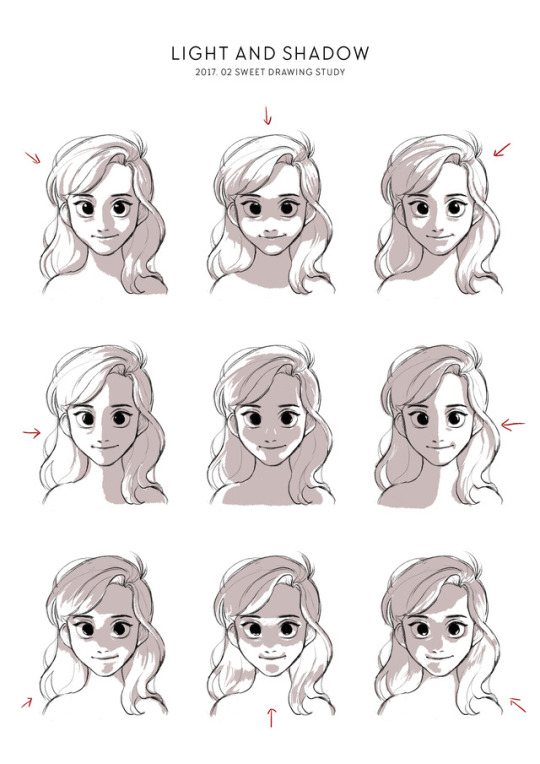
20170226
Drawing Study of February - Light and Shadow
118K notes
·
View notes
Text
“How arw you paying for photoshop” im not LMAO
439K notes
·
View notes
Text
Character solidifying!
73K notes
·
View notes
Photo
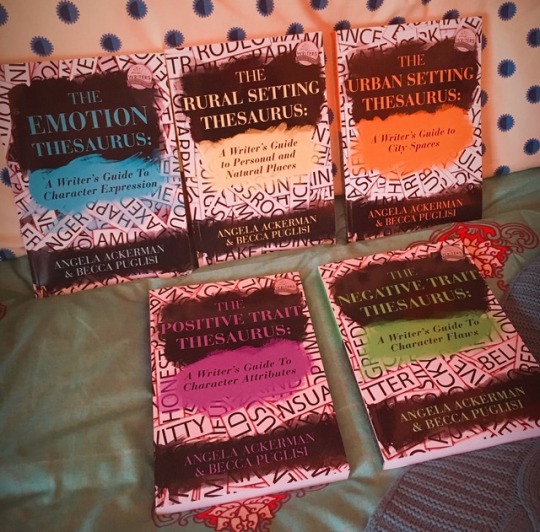

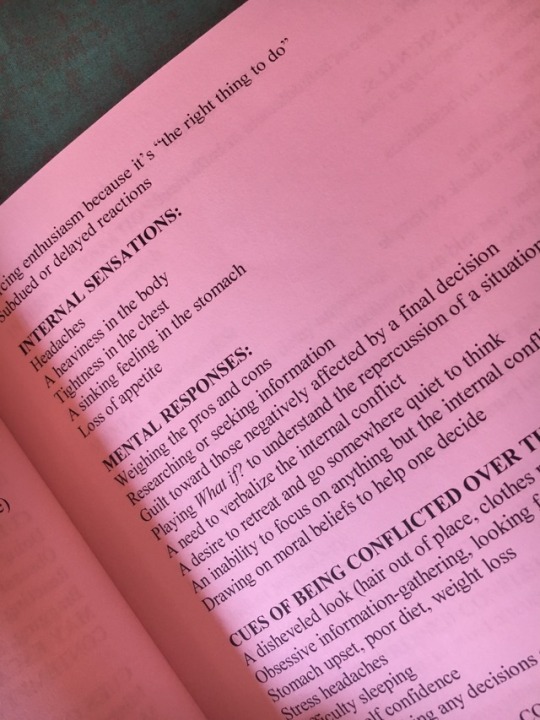
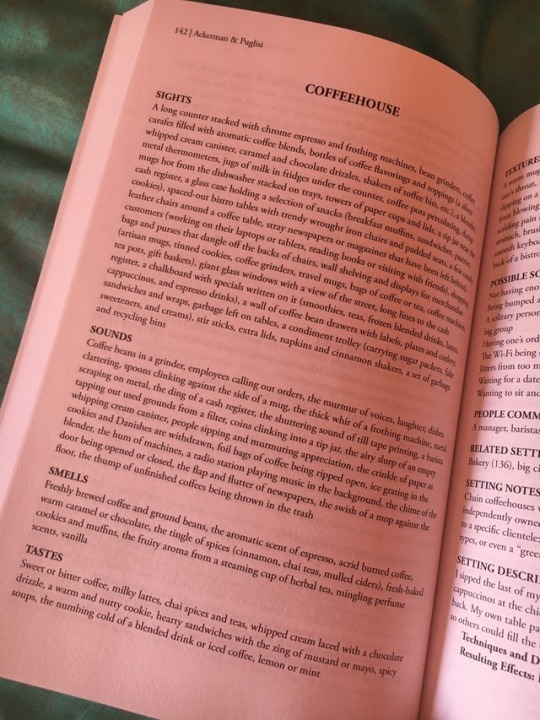
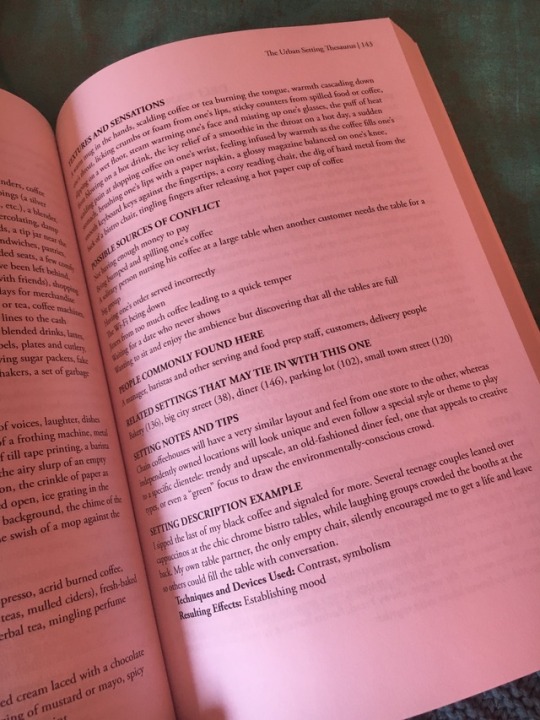
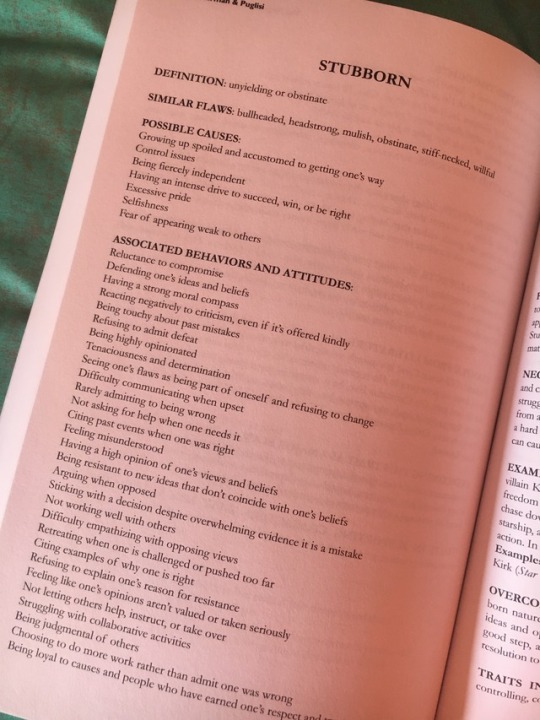
OKAY
I have been meaning to do this for MONTHS but hey, there’s no better time than the present so buckle up, here we go!
THESE BOOKS ARE A GODSEND.
I am ALWAYS on the lookout for writing aids that ACTUALLY HELP. If you’re like me, and occasionally venture out to buy books on, let’s say, showing vs telling - you will always get the same rehearsed speeches on what that means. -summons pretentious writer’s voice- You’ve got to shoooooow what’s happening in the scene, not teeeeeeell~~ BAH! What you NEVER get, however, is how to do it, or how do it better.
THESE BOOKS ARE THE STUFF OF DREAMS
Each of these is so freaking helpful, I can’t even convey. They all follow the same format as the pictures I’ve shown above, so you get one detailed page of descriptions followed by tons of more in-depth, thought provoking concepts.
I’ll do my best to lay out the five that I have and if you are interested, hop on over to Amazon and buy these suckers up because they are AMAZING; I have NEVER used a writing resource more than I use these.
Negative Trait Thesaurus & Positive Trait Thesaurus
-gives you a definition of said negative trait
-gives you similar flaws also found in the book
-gives you possible causes of WHY the character might have this trait
-gives you a list of other behaviors the chara might have
-gives you examples of the chara’s thought process
-gives associated emotions
-gives positive aspects of the trait, as well as negative
-gives examples of well known chara’s that have this trait
-talks about how the chara might overcome it
-gives traits that, when combined with this one, might cause conflict
How I use this information:
Chara building, or when I get stuck on what I want a character to do. Man, I just can’t decide what they WOULD do. Well, awesome, I have a little guide to help me think through the character’s possible motivations. Also, I get help building a potential backstory because I get a framework of which to think, why is the character this way?
Urban Setting Thesaurus & Rural Setting Thesaurus
-gives a whole lot of examples of sights, smells, tastes, and sounds
-gives examples of textures and sensations (ie at an ‘antique shop’ you may encounter chipped paint, distressed wood, etc)
-gives you possible sources of conflict (ie at a ‘hotel’ you might have noisy neighbors)
-gives list of people you might expect to find at said location
-gives related settings
-gives tips on this type of setting
-gives a setting description example
How I use this information: IMAGERY IMAGERY IMAGERY
Emotion Thesaurus (aka MY FAVORITE)
-gives a definition of the emotion
-gives physical signs and signals (ie chara may look pale, might fidget, etc)
-gives internal sensations (aka, blood pounding in the ears, dry throat, adrenaline rush)
-gives mental responses (ie fight or flight)
-gives cues of acute or long-term impacts of the emotion
-gives ‘may escalate to _______’ and directs you to other emotions
-gives cues of suppression (ie cues of suppressed rage)
-gives writer tips
How I use this information: I love this book so hardcore, it’s so helpful with internalizing. It’s great because I get to step outside of that box of using the same five responses to a certain emotion and start really thinking about, what can a character do instead to show that they are feeling this, rather than me using adverbs or his adrenaline pumped fifty gazillion times.
These books are all co-written by Angela Ackerman and Becca Puglisi (bless their souls) and if this sounds of interest LOOK INTO IT!! I get such buyer’s regret after buying writing guides but these are legit the best ones I have found and I reference them so, so, so much.
Hope this helps anyone out there looking for something life-changing!!
31K notes
·
View notes
Text
hey so i found out that not a bunch of people knew about this handy thing
but you can post anonymously on AO3!!! here’s how it works:
post it under this collection
everyone sees this work under “Anonymous” but you see your own work as “Anonymous [Your Username]”
the fic is STILL connected to your account, but nobody can trace it back to you + you still get comments in your inbox!
“is it like “Orphan”?
nope! it’s not! the difference is when you Orphan a work, it’s no longer connected to your account and you can’t get alerts/comments.
“can I de-anon my work?”
yes you can! you can de-anon your work any time you want. all you have to do is remove your work from the anonymous collection!
if you are shy about posting, or scared of having a work connected back to your account, or even participating in an anon fest, this is PERFECT!
18K notes
·
View notes
Text
some fucking resources for all ur writing fuckin needs
body language masterlist
a translator that doesn’t eat ass like google translate does
a reverse dictionary for when ur brain freezes
550 words to say instead of fuckin said
638 character traits for when ur brain freezes again
some more body language help
258K notes
·
View notes
Text
WritScrib!
“an upcoming niche social network that lets creative people accept tips on every post that they make, giving creators the opportunity to earn some extra money simply from sharing their work.”
Additionally, the focus of this website is artistic freedom and open communication, while simultaneously eliminating all the things that make this website awful. For example:

After following their blog for a while, @writscrib , the staff seem dedicated to building a creative space vital for artists to develop and thrive and therefore has my full support.
But this site won’t take of without further support from you guys, so please consider donating to their indiegogo: https://igg.me/at/writscrib/x/13827059 and/or following the aforementioned blog.
Thank you for reading :D
2K notes
·
View notes
Photo

Lil tutorial thingy
38K notes
·
View notes
Text
How to other eye
ALRIGHT, so, I know a lot of people have trouble making eyes match. Yesterday I found out a way to make it significantly easier! Here’s a small guide.

Well, first of all, you have your face. mark where the eyes should be on it.

Then mark the corners of the eyes and go over the middle again, to make the next step easier

Alright, I know it sounds a bit crazy, but draw this shape, trying to make it as symmetrical as you can.

Draw the eyes using that shape as a guide and TA-DA! They match! For different eye shapes you tweak the angle of the two guide lines.

And it also helps with angles where the size and shape of the eye is distorted, you just put it in perspective.

I think the theory behind it is that the thing that makes it hard to make the eyes match is the angle of the corners, and this type of guideline helps make them even, which makes the eyes look symmetrical. Welp, here it is! I hope it helps someone!
152K notes
·
View notes
Text
Big Ol’ Honkin’ OC Question List-- Long Post Ahead!
Alright, here we go– I put together a list of questions about OCs that you can reblog and have people send in asks for you! I set it up so you can be like, “A3″, “D2″, et cetera… Keep checking in here to the original post in case I add some more to the list! In the meantime, I hope y’all have some fun with this and maybe use it to learn a little bit more about your OCs or get to share things about them!!
A. Psychology
What of the Meyers-Briggs personality types they most fit into? INFP, ENFT, et cetera…
What alignment are they? Chaotic neutral, lawful evil, et cetera…
Do they have any emotional or psychological conditions? Are they aware of it? Do they try to treat it?
Are they a pessimist or an optimist?
Are they good at handling change in their life?
Does your OC tend to assume their interpretation of events and reality is correct, or do they question it? I.e., “I’m sure that’s what you said” versus “It’s possible I misheard you.”
Is your OC confident in their reactions to life in general, or do they get embarrassed or easily shamed for it? I.e., if something startles them, do they insist it WAS scary? When they cry, do they feel like they overreacted?
Is your OC a martyr?
Does your OC make a lot of excuses? For themselves? Others?
Does your OC compromise easily? Too easily?
Does your OC put others’ needs before their own?
Does your OC have any addictions? If so and problematic, have they admitted it to themselves?
Does your OC have any phobias? If so, where did they come from?
Is your character empathetic?
Is your character observant?
Does your OC have to go through their own trials to learn a lesson, or do they listen and learn from observation and lecture? I.e., does your OC listen when someone tries to tell them the importance of budgeting, or do they have to go experience what happens if you don’t budget first?
What’s one of your OC’s proudest moments of themselves?
Do they get jealous easily? Do they feel bad if they do?
What instantly irritates them or puts them in a bad mood?
Are they harsh on themselves?
Do they make excuses often?
Is your OC intended to be found generally attractive? Unattractive? Average? Is there a reason why?
Does your OC place much importance on their appearance? Do they feel confident in it?
What are some of your OC’s biggest personal obstacles? This could be emotional, physical, social… Are they aware of it? Are they trying to overcome it?
B. Social
Do they believe you have to give respect to get it, or get respect to give it?
Do they get frustrated when lines at places like pharmacies, check-outs, delis, banks, et cetera, are moving slowly?
Under what situations would they get angry at servers, staff, customer service, et cetera?
Do they tip well? How easily can they be moved to not leave a tip?
Do they hold doors open for people?
Would your OC let someone ahead of them in line if your OC had a big cart and the person behind them had very few items?
How do they respond to babies crying in public?
Is your OC considered funny? Do they believe they’re funny?
What kind of humor does your OC like the most? Slapstick, ironic, funny sounds, scare pranks, xD sO rAnDoM…
Does your OC find any “bad” or “mean” humor funny? Do they wish they didn’t?
Your OC is running late to meeting someone: Do they let the other person know? Do they lie about why they’re late?
Your OC orders something to eat and gets their order done in a pretty wrong way, something they can’t just pick off or whatnot to correct, or something major is missing. What do they do?
Do they have a large or small group of friends?
Do they have people they are genuinely honest with about themselves?
Does your OC enjoy social events, such as parties, clubs, et cetera..?
Does your OC like to be the center of attention or more in the mix?
C. Morality
Does your OC have a moral code? If not, how do they base their actions? If so, where does it come from, and how seriously do they take it?
Would your OC feel bad if they acted against their morals? If not, would they find a way to excuse themselves for it?
Is it important for them to be with people (socially, intimately, whatever) whose major ideological tenets align with their own?
Do they consider themselves superior or more important than anyone else? Lesser?
Do your OC’s morals and rules of common decency go out the window when it comes to those they don’t like, or when it’s inconvenient? Aka, are their morals situational?
What do they do when they see someone asking for money or food? If they ignore them, why? If they help, how so?
Do they believe people change over time? If so, is it a natural process or does it take effort?
Is your OC more practical or ideal morally? I.e., do they hold people to high expectations of behavior even if it’s not realistic for the situation, or do they have a more realistic approach and adapt their morality to be more practical?
D. Religion and Life and Death
How religious is your OC? What do they practice, if anything? If they don’t associate with any religion, what do they think of religion in general?
Do they believe in an afterlife?
How comfortable are they with the idea of death?
Would they like to be immortal? Why, why not? If they are immortal, would they rather not be?
Do they believe in ghosts? If not, why? If so, do they think they’re magical/tie into their religion, or are they scientifically plausible?
E. Education and Intelligence
Would you say that your OC is intelligent? In what ways? Would your OC agree?
Which of the nine types of intelligence is your OC strongest in? Weakest? (Linguistic, existential, naturalist, et cetera)
How many languages do they speak?
Did they enjoy school if they went to it?
What’s their highest education level? Do they want to continue their education?
Do they enjoy learning? Do they actively seek out sources of self-education?
Are they a good note-taker? Are they a good test-taker? Do exams make them nervous?
What’s one of your OC’s biggest regrets?
F. Domestic Habits, Work, and Hobbies
What sort of home do they live in now, if at all? How did they end up there?
What’s their ideal home look like? Where is it?
Could they ever live in a “tiny home”?
How clean are they overall with home upkeep?
How handy are they? Can they fix appliances, cars, cabinets, et cetera?
How much do they work? What do they do? Do they enjoy it?
What’s their “dream career” or job situation?
How often are they home?
Are they homebodies and enjoy being home?
Do they engage in any of the arts? How good do you intend them to be? Would they agree they are?
What are some of their favorite things to do for recreation? How did they get into it? What part of it do they like the most?
Would they enjoy a theme park?
G. Family and Growing Up
Is your OC close to their family?
Who makes up your OC’s family, at least the more important members to them?
Does your OC find their family supportive? If not, what would be an example why not?
What kind of childhood did your OC have?
Did they go through any typical phases growing up?
Do they have any favorite childhood memories?
Do they have any childhood memories they’d rather forget or be less affected by?
H. Romance and Intimacy
What is your OC’s orientation, romantic and/or sexual? Has it ever been a source of stress for them? Have they always been pretty sure of their orientation?
Is your OC a thoughtful partner, in whatever aspect of that you want to cover?
Does your OC believe there’s only one ideal partner (or multiple ideal if not monogamous) for everyone, or that there are many people who could be right?
Does your OC believe in love in first sight?
Does your OC believe in marriage (or their culture’s equivalent)?
Has your OC ever cheated on anyone or been cheated on?
What do they look for in partners? (Emotionally, mentally, physically..)
What’s your OC’s idea of a perfect date?
What are some things that your OC finds to be an instant turn-off in potential partners?
I. Food
What are their favorite kinds of flavors– Sweet, salty, sour, spicy, creamy, et cetera?
Do they have any eating requirements or preferences? Allergies, vegetarian, organic-only, religious restrictions…
Are they vegan/vegetarian (if their overall culture/species generally aren’t)? If so, why? Do they think animal products are wrong in all circumstances?
How often do they cook? Do they order out a lot?
Are they a good cook?
Could they eat the same thing they enjoy over and over and not get bored of it quickly?
J. Politics, Current Events, Environmental Aspects
Where does your OC stand most politically? What would they align with most?
How politically aware are they?
How politically active are they?
Is your OC the sort to fall for fake news? If not, do they ignore it or make a point to clarify that it’s wrong?
Are they or would they protest for a cause they’re passionate about?
How do they react to people whose political viewpoints are very opposite of theirs?
How much interest in environmental health do they have?
In reality-based or applicable worlds, do they believe in global warming? Do they recycle?
K. For OCs in Reality-Based Worlds Who Are Unusual in Paranormal Ways (such as magical abilities, being another species, having a curse like lycanthropy, sci-fi abilities, being from another time, et cetera)– Also for OCs where the scenario is similar even if their universe isn’t based on reality
Does your OC have to keep their paranormal aspect (PA) a secret from general society? If so, how? I.e., they can’t discuss their abilities, they have to hide a tail, they have an alter-ego, et cetera. What would happen if society found out about it?
Are there others in their universe with the same or a similar PA as your OC? I.e., others from different dimensions, others of their same species. Do they know about it?
Does your OC have any friends who know about their PA? Any enemies?
Does your OC ever use their PA to get an advantage? I.e., use their ability to be invisible to steal or get out of things, compete in track while their species is a naturally superior runner, use their invulnerability in careers like police work… If so, do they have any hang-ups about it?
Does your OC feel isolated or unrelatable due to the experience their PA brings with it? If so, how do they deal with it?
Does their PA cause issues in daily life? I.e., if they’re inhuman in a human universe and they can’t go to a doctor or risk the doctor realizing they are not human, super abilities with physical drawbacks, they don’t have control of their abilities and must keep to themselves, et cetera… If so, how do they feel about it?
Does your OC’s PA affect their dietary habits so that they are unusual or problematic by their society’s standards?
What are some routines, if any, of self-care that your OC must engage in that are not typical of their society? I.e., having to file their teeth, maintaining magical rituals, drinking blood…
Does your OC have knowledge that they can’t share with the rest of their world that could improve it if it didn’t cause chaos? I.e., a character from the future knowing about technology not yet invented, but they can’t reveal themselves by sharing it?
Would your OC give up their PA if they could? Why or why not?
L. For the Writer/Owner
How have your characters changed since you created them?
What do you consider the biggest themes in your character, if any?
Did you create the character to be like yourself, did they end up being like yourself, or are they very different from you?
Would you hang out with your OC if you could?
Which OC do you think is the most decent morally or behaviorally? AKA, which is supposed to a “good guy”?
Which OC do you think is the worst morally or behaviorally? AKA, which is supposed to be a “bad guy”?
Which OC do you think is the most attractive?
What’s the longest you’ve had an OC for?
How did you come up with your OC?
10K notes
·
View notes
Photo

Character Aging Sheet by deeJuusan
2K notes
·
View notes







